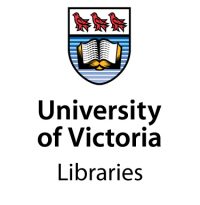Each year UVic faculty, staff, students, alumni, and retirees produce an incredible amount of intellectual content reflecting their breadth and diversity of research, teaching, personal, and professional interests. A list of these works is available here.
The Conflict in Ukraine: What Everyone Needs to Know is a recent title by UVic History and Germanic and Slavic Studies faculty member Serhy Yekelchyk.
About the Book

The Conflict in Ukraine: What Everyone Needs to Know explores Ukraine’s contemporary conflict and complicated history of ethnic identity, and it does do so by weaving questions of the country’s fraught relations with its former imperial master, Russia, throughout the narrative. In denying Ukraine’s existence as a separate nation, Putin has adopted a stance similar to that of the last Russian tsars, who banned the Ukrainian language in print and on stage. Ukraine emerged as a nation-state as a result of the imperial collapse in 1917, but it was subsequently absorbed into the USSR. When the former Soviet republics became independent states in 1991, the Ukrainian authorities sought to assert their country’s national distinctiveness, but they failed to reform the economy or eradicate corruption. As Serhy Yekelchyk explains, for the last 150 years recognition of Ukraine as a separate nation has been a litmus test of Russian democracy, and the Russian threat to Ukraine will remain in place for as long as the Putinist regime is in power. In this concise and penetrating book, Yekelchyk describes the current crisis in Ukraine, the country’s ethnic composition, and the Ukrainian national identity. He takes readers through the history of Ukraine’s emergence as a sovereign nation, the after-effects of communism, the Orange Revolution, the EuroMaidan, the annexation of the Crimean Peninsula, the war in the Donbas, and the West’s attempts at peace making. The Conflict in Ukraine is essential reading for anyone who wants to understand the forces that have shaped contemporary politics in this increasingly important part of Europe.
About the Author
Dr. Serhy Yekelchyk received his BA from Kyiv University and an MA from the Ukrainian Academy of Sciences. Following a research fellowship in Australia in 1993–94, he came to Canada in 1995 to pursue a Ph.D. in Russian and Eastern European History at the University of Alberta. His dissertation analyzed representations of the past in Stalinist culture, with special emphasis on Soviet Ukraine. After graduating, he taught for a year at the University of Michigan (Ann Arbor) before coming to Victoria in 2001.
 Dr. Yekelchyk’s research interests evolved since then to include the social and political history of the Stalin period, as well as the formation of a modern Ukrainian nation from the mid-nineteenth century to the present. His Ukraine: Birth of a Modern Nation (Oxford University Press, 2007) was the first Western history of Ukraine to include the coverage of the Orange Revolution and was translated into five languages. His monograph on late-Stalinist political rituals appeared in 2014 and a book about the current Russian-Ukrainian conflict is coming out in 2015.
Dr. Yekelchyk’s research interests evolved since then to include the social and political history of the Stalin period, as well as the formation of a modern Ukrainian nation from the mid-nineteenth century to the present. His Ukraine: Birth of a Modern Nation (Oxford University Press, 2007) was the first Western history of Ukraine to include the coverage of the Orange Revolution and was translated into five languages. His monograph on late-Stalinist political rituals appeared in 2014 and a book about the current Russian-Ukrainian conflict is coming out in 2015.
Dr. Yekelchyk is cross-appointed between the departments of Germanic and Slavic Studies and History and teaches a variety of courses on Russian history, Stalinism, Modern Ukraine, and Cold-War cinema. He supervises graduate and Honours students working on various aspects of Russian and Eastern European history and culture.
Praise for the Book
“Excellent… a succinct, lucid text that is ideal for newcomers to recent Ukrainian events.” – The Financial Times
“Yekelchyk masterfully presents the history, politics, culture, background, and motivations for the Ukrainian crisis. It would take years of study to appreciate the intricacy of the Ukraine-Russia relationship from the time of Volodymyr the Saint (~ 988) to the present, and it would require dozen visits to Ukraine to understand the land and its people. Yet, in only 166 to-the-point but deeply researched pages, Professor Yekelchyk presents and discusses an incredible amount of detail and provides the reader with a clear, both-sides-of-the-story analysis of Ukraine, Russia, and the Black Sea region.” – Rudy L. Hightower II, Origins: Current Events in Historical Perspective. 9 (7) Apr. 2016
